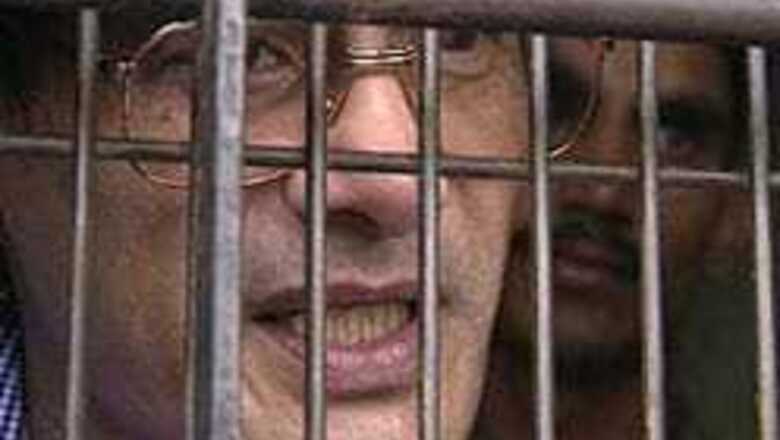
views
Kathmandu: Though the media dubbed him the 'Serpent' and 'Bikini Killer', Charles Sobhraj's former prison mates still retain strong ties with him, with some of them going to Kathmandu's Central Jail to wish him good luck.
While Nepal's Supreme Court dashed the 63-year-old's dream of celebrating Christmas with his wife, daughter and friends in Paris by ordering a retrial last week, a friend he had made in prison in 2003 and a Danish tourist he befriended in the same prison this year, came bearing Christmas gifts and best wishes on Tuesday.
"I helped him with his trial," Sobhraj told IANS, waving at the elderly Danish man who had come laden with Christmas cakes and confectionery.
The tourist, who did not want to be named, said he had been the victim of blackmail in Nepal.
"I befriended a street boy for some time," the man said. "But when I did not want to give him any more money, he told the tourist police I had molested him."
The Dane spent almost six months in the same prison where Sobhraj is serving a 20-year sentence for the murder of an American tourist in 1975.
The Dane had an amazingly fast trial that ended with the district court acquitting him this month.
Besides providing him with his own lawyer, Sobhraj also helped the man with his legal arguments.
Sobhraj's other Christmas visitor was 36-year-old Makhan Singh from India's Jammu and Kashmir state who had served 11 years in Nepal's prisons on a murder charge.
"I have several things in common with Sobhraj," said the turbaned Singh, who stands out with his flowing ginger beard.
"Police could provide no evidence and the witnesses refused to implicate me. Police tortured me severely to extract a confession. I still have a limp because of that," he said.
Singh was in the central jail in 2003 when Sobhraj was spotted in Kathmandu, arrested from a casino and first charged with having come to Nepal in 1975 using a fake passport and then, murdering Connie Jo Bronzich.
In the beginning, due to his reputation as a jail-breaker, Sobhraj was always kept under surveillance and not allowed to leave his cell or talk to other prisoners.
"One day, he passed me by chance and realising I was a Sikh, murmured the Sikh greeting Shri Satsangh," Singh said.
Sobhraj, born in Ho Chi Minh City, was the son of a Sikh businessman and a Vietnamese mother, who later acquired French citizenship.
"He had also spent about 20 years in New Delhi's Tihar Jail that housed Sikh militants," Singh said. "So he knew about Sikh customs and respected the community that is known to be honest and religious."
Singh was released after serving only 11 of his 21-year sentence as he was given a royal pardon in 2005 on the occasion of King Gyanendra's birthday.
Though he left for India, he still stays in touch with Sobhraj and came down to visit him this month when the Supreme Court was scheduled to give its final verdict on Sobhraj's appeal against the murder sentence.
"I feel he could also have his sentence reduced on the special occasions that Nepal pardons prisoners," Singh said.
An earlier appeal by Sobhraj's lawyers to the king to release him on the king's birthday, however, went unheeded.
Sobhraj says he is innocent and was convicted in Nepal because of its inefficient and corrupt judiciary. He has also warned of a hunger strike if he does not get a speedy retrial.
















Comments
0 comment